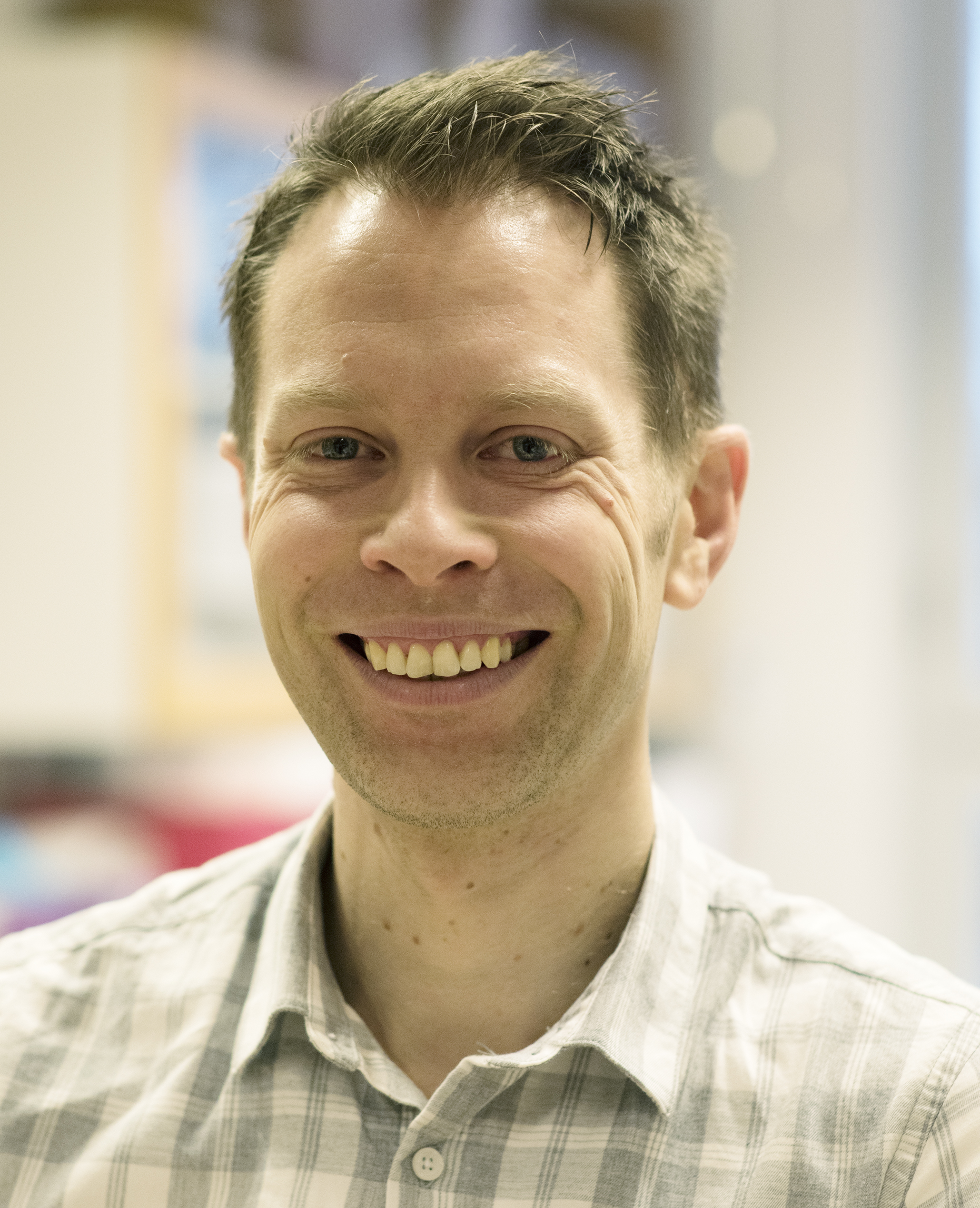Welcome Mikael Sellin, our newest SciLifeLab fellow!
He is a cell biologist who did his Post Doc in a microbiology lab. Now he hopes to help fighting emerging bacterial disease, using new models for microbial gut infections. Mikael Sellin is a SciLifeLab fellow since December 2016.
“When you hear clinicians talk about antibiotic resistance it gives you chills down your spine, that is how serious it is. This is going to be a big issue in the coming decades. Even common surgical procedures that rely on some type of sterile measurement may potentially be in danger.”
Mikael Sellin is not directly studying new antibiotics, but focus on pathogen-host cell interactions, especially Salmonella and Shigella in the gut-system. His hope is that his lab can contribute with new knowledge for this group of pathogens that will in turn promote the development of new drugs.

“If you have a very complex car and you want someone to fix it, by giving them a blueprint they might actually be able to help you. That’s the relationship I see between researchers and clinicians: We provide a blueprint for gut infections and this will hopefully aid in the development of strategies in the clinical setting.”
Mixing fields into a successful combination
Mikael was born and raised in the far north of Sweden, close to the Arctic Circle. He studied in Umeå and did his PhD on fundamental cell biology there. He has always had an urge of traveling the world and when he finished his PhD-studies he thought that now was the time to go abroad and fully submerge in a new culture for a few years. So he and his girlfriend Sandra, who is now his wife, decided to move to Zürich in Switzerland together and spent almost 5 years there.
“It was a powerful experience both when it comes to science and to just realizing how it is to properly live in another country.” Mikael said.
Research wise, the years in Zürich also marked a new chapter in Mikael’s career. In Umeå he focused on understanding how human cells are organized, in particular the cytoskeleton and how it is subverted during cancer progression. After his PhD he wanted to go into a completely new field instead of staying in the same one as many scientists do throughout their careers. So Mikael decided to study pathogenic bacteria and their mechanisms of inducing disease thinking that someone like him, who comes from the host-side could make novel contributions to the area. He found position at a lab at ETH Zürich and that is where he picked up the microbiology knowledge that he was lacking back then.
“I brought a unique competence to the lab, while the things I was crap at everyone else knew. This could have been frustrating, but I was lucky enough to meet people who were on the same level as me socially, so it turned into a very rewarding and fruitful experience.”
Starting up the group
Since 7 months Mikael, his wife, and two kids are now back in Sweden in Uppsala where Mikael is starting up his own group with the funding from the SciLifeLab fellows program.
“There are many perks with Swedish society especially if you want to combine career and family; there are few countries that would trump this. Furthermore, the SciLifeLab fellowship really offers us not to only get by, survive and have a reasonable career, but to pull the string all the way to the back and really shoot for something long term. The horizon is not necessarily 1-2 years, but 5-10 years or more and it is the first time in my life that I can plan that far ahead.”
“I now have a permanent senior researcher working with me and a postdoctoral fellow and a master student who will turn into a PhD-student in a couple of months. We are starting to pass the admin only-phase and are going into lab work now.”
Building new models
During his time in Zürich Mikael went from the single cell analysis in culture he did during his PhD to doing bacterial infections in whole animals.
“Where my lab is going long term is to fuse these two things with each other, going back into culture but trying to stick to settings that are physiological. Salmonella and Shigella infections of the gut have been studied for a long time and been paradigm-forming for our knowledge about how bacteria and host-cells interact, but the model systems that have been used for the past 25 years have been very simplistic.”
“If you have HeLa cells, which is a cervical cancer from the 50’s growing on a flat plastic disc, that is not the mucosa of your intestine. It can to some extent be a model of it, but for many aspects these model systems are insufficient. That is what I am trying to bridge now by creating intermediates, which is growing tissue replicas outside the body.”
Also in adult tissues there are stem cell-like cells that can develop into new tissue and Mikael and his group in Uppsala takes these stem cell out from the gut and grow them to miniature organs, so called organoids, outside the body. This gives them a model that is physiologically almost an in vivo system but they can still manipulate it and add and remove different factors with precise dosage and timing.
“We do this now for mice and we can do this for humans in the long term. This allows us walk between the systems and the goal is to get a full blueprint for each of these pathogens; the actual consecutive events driving for instance a Salmonella infection of the gut, the relevant actions of the bacterial side and of the host side. This will hopefully allow us in the long term to go into next generation therapeutics.”




